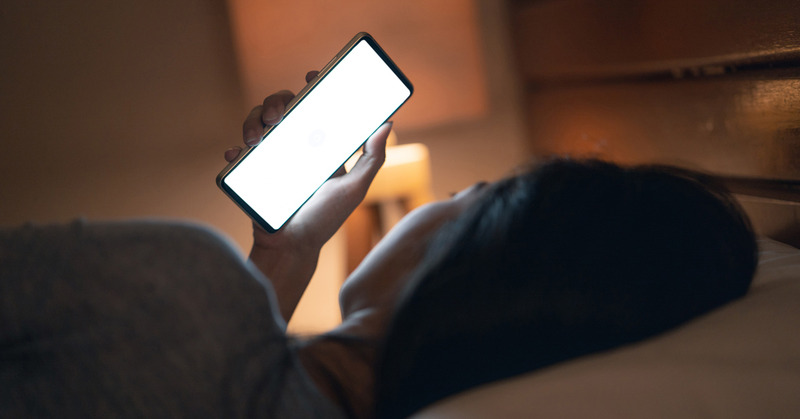How Does Screen Time Interfere With Sleep?

by Alia Awanis
With the internet playing a huge role in our lives, especially in the middle of this COVID-19 pandemic where most of the things are now conducted online, we need to start worrying about how we can better control our screen time.
The Body Clock
Each cell in our body has its own clock. Unlike any clock that we see in our daily lives which rely on cogs and gears to operate, biological clocks run according to a schedule and help body processes follow a 24-hour cycle – the circadian rhythm.
Ever wonder why we feel awake during the day and drowsy at night? This is because our sleep-wake cycle is aligned with our light-dark cycle by the circadian rhythm. In the morning when the light hits the photoreceptors found in the retina of your eyes, the activity of specific genes is altered to help you feel awake for the rest of the day. The synthesis of melatonin, a hormone that aids in sleep, is also minimised due to exposure to light. When the light begins to fade in the afternoon, the production of melatonin peaks to help you fall asleep.
Harmful Effects of LED Lights
Amid the pandemic, we now spend most of our time indoors and are exposed to a variety of artificial light sources that disrupt our internal clock.
The Intrinsic Photosensitive Retinal Ganglion Cells (ipRGC) is a type of photo-receptor that sends signals to the Suprachiasmatic Nucleus (SCN) and is best at detecting the colour of blue of the light. The LED screen is one of the enemies of our circadian rhythm as it produces a fair amount of light in the blue spectrum.
When you turn on your screen after dark, the blue light will be sensed by the ipRGC, which is unable to distinguish between the blue light that comes from the sun and the screen. As a result, your brain will receive a signal telling the body to stay awake; the SCN reacts by suppressing the production of melatonin. This is why a large number of people have difficulty falling asleep, even at bedtimes.
Turn Off The Light
A consistent circadian rhythm and proper sleep are critical for our bodies and minds to operate effectively. Insufficient sleep or circadian disorientation can cause long-term health and mental issues such as type II diabetes, cancer and cardio-vascular disease. To avoid these, minimise your exposure to mobile phones or any other devices 1-2 hours before you sleep. We should do our best to maintain this important component of our body.